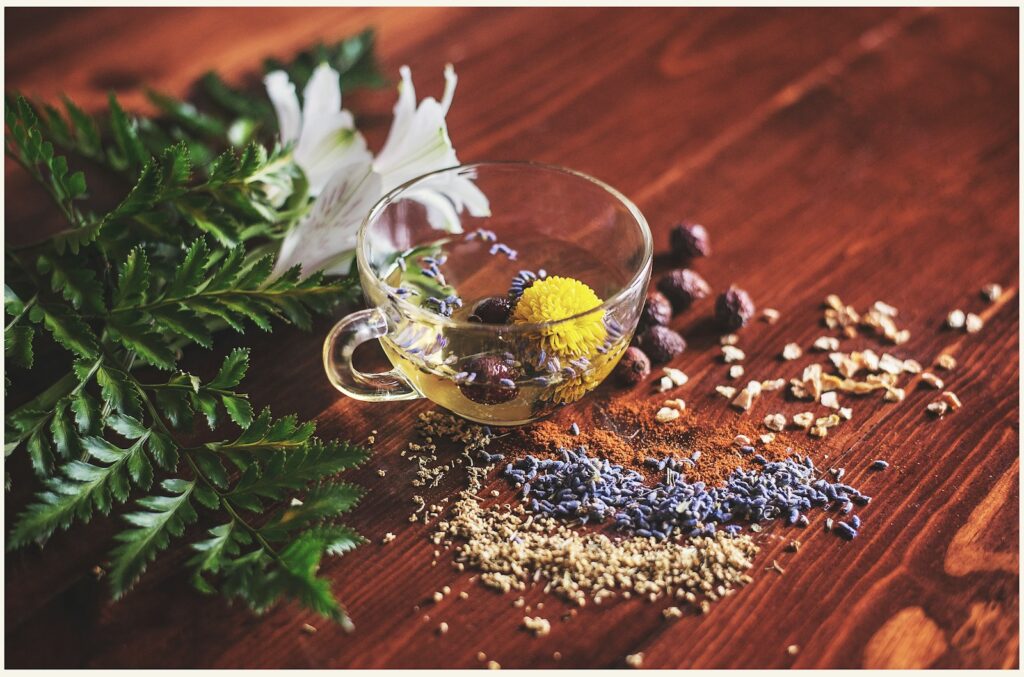Female Hormone Balance: 10 Natural Remedies for Optimal Health
Hormones affect a woman’s mood, energy level, weight, and reproductive health, among other aspects of her health. Hormonal Imbalance Symptoms: mood fluctuations, weight gain, exhaustion, and irregular menstruation, among other health problems. Many women look for natural solutions to maintain and restore hormonal balance, even while modern medicine offers a variety of treatments. Ten natural solutions that can assist women in achieving ideal hormonal health will be discussed in this blog.
Understanding Hormonal Balance
The endocrine glands create hormones, which are chemical messengers that control a variety of bodily processes, including as growth, metabolism, reproduction, and mood. Progesterone, testosterone, cortisol, insulin, and oestrogen are important hormones that have an impact on women’s health. For general health, these hormones must be in a delicate balance.
Stress, a bad diet, inactivity, and exposure to pollutants in the environment can all lead to hormonal abnormalities. An imbalance in hormones can cause mood changes, weariness, weight gain, irregular periods, and sleep problems. While seeking medical advice is crucial, using natural therapies can enhance hormonal health and supplement traditional therapy.
1. Maintain a Balanced Diet
The Importance of Nutrition
A balanced diet rich in Hormone Balancing Foods is fundamental for hormonal health. Nutrient-dense foods provide the vitamins and minerals necessary for hormone production and regulation.
Key Nutrients for Hormonal Health
• Good Fats: Omega-3 fatty acids are essential for the synthesis of hormones and the reduction of inflammation. They may be found in walnuts, flaxseeds, and seafood. These fats serve as the building blocks of hormones and are crucial for preserving the fluidity of cell membranes, which is necessary for hormone receptors to function correctly.
• Fibre: Foods high in fibre, like fruits, vegetables, and whole grains, aid in blood sugar regulation and promote healthy digestion, all of which are critical for hormone balance. Additionally, fibre helps the body rid itself of extra oestrogen by stopping it from being reabsorbed into the bloodstream.
• Protein: Consuming enough protein promotes the generation of hormones and aids in the maintenance of muscle mass. Add sources such as nuts, beans, and lean meats. Proteins are made up of amino acids, which are essential for the production of hormones including growth hormone and insulin.
• Antioxidants: High antioxidant fruits and vegetables help lower oxidative stress, which can interfere with hormone function. Antioxidants such as beta-carotene, selenium, and vitamins D and E shield the endocrine glands from harm brought on by free radicals.
Practical Tips for a Balanced Diet
- Include a mix of Foods: To make sure you’re getting a wide range of nutrients, aim for a colourful plate that includes a mix of fruits and vegetables.
- Select Whole Foods: To optimise your intake of fibre, go for whole grains rather than processed grains and entire fruits instead of fruit juices.
- Watch Your Portion Size: Stable blood sugar levels and fewer hormonal swings can be achieved with meals that are balanced and include the right amounts of protein, fats, and carbs.
2. Herbal Supplements
The Power of Herbs
Herbs have been used for centuries to support women’s hormonal health. Some herbs have properties that can help regulate hormone levels naturally.
Effective Herbal Remedies
- Vitex (Chasteberry): This herb is known for its ability to balance progesterone levels and alleviate symptoms of PMS and menopause. Vitex works by influencing the pituitary gland, which regulates the production of several hormones, including those involved in the menstrual cycle.
- Maca Root: Native to Peru, maca root is an adaptogen that helps the body adapt to stress and supports overall hormonal balance. It is believed to influence the hypothalamus and pituitary gland, which are crucial for regulating hormones.
- Ashwagandha: Another adaptogen, ashwagandha, helps reduce cortisol levels, promoting a balanced stress response and improving thyroid function. Chronic stress can lead to high cortisol levels, which can disrupt other hormones, and ashwagandha helps mitigate this effect.
- Black Cohosh: hh Black cohosh is frequently used to treat menopausal symptoms and can help control oestrogen levels. It works very well at lessening menopausal hot flashes and nocturnal sweats.
How to Use Herbal Supplements

- Speak with a Healthcare Professional: It’s important to speak with a healthcare professional before using any herbal supplement, particularly if you have any underlying medical concerns or are currently taking other medications.
- Comply with Recommended Doses: To prevent any negative effects, follow the dosage guidelines supplied by the manufacturers or medical experts.
- Track Your Body’s Reaction: Keep an eye on how your body reacts to herbal supplements and modify as necessary. Herbal therapies are not always immediately effective, so persistence and patience are essential.
3. Regular Exercise
The Benefits of Physical Activity
Regular exercise is essential for maintaining hormonal balance. Physical activity helps regulate insulin levels, reduce stress, and promote overall well-being.
Types of Beneficial Exercise
• Cardio: Exercises that enhance cardiovascular health and aid in weight management include cycling, swimming, and jogging. Cardiovascular workouts raise heart rate and trigger endorphin production, which lifts the spirits and eases tension.
• Strength Training: Increasing muscle mass through resistance training, such as weightlifting, promotes blood sugar regulation and metabolism. Because muscle tissue has a higher metabolic activity than fat tissue, it helps maintain a healthy weight by burning more calories when at rest.
• Pilates and yoga: These techniques enhance flexibility and strength, ease tension, and help maintain hormonal balance. Yoga and Pilates promote a mind-body connection that can lower cortisol levels and improve mental health in general.
Fitness Routine for Women
- Set Realistic Goals: Start with achievable goals that fit your current fitness level and gradually increase the intensity and duration of your workouts.
- Mix It Up: Incorporate a variety of exercises to keep your routine interesting and work different muscle groups.
- Listen to Your Body: Pay attention to your body’s signals and avoid overexertion. Rest and recovery are crucial for maintaining hormonal balance.
4. Stress Management Techniques
The Impact of Stress on Hormones
Chronic stress is a significant factor in hormonal imbalance. High-stress levels increase cortisol production, which can disrupt the balance of other hormones. Prolonged elevated cortisol levels can lead to issues such as insulin resistance, thyroid dysfunction, and imbalances in reproductive hormones.
Stress Reduction Strategies
• Mindfulness and Meditation: Engaging in these practices can help lower stress levels and foster a sense of serenity. By keeping an eye on the here and now, mindfulness can lessen anxiety and increase mental clarity.
• Deep Breathing Exercises: These methods can help reduce cortisol levels and encourage calm. Methods like breathing through your nose and diaphragmatic breathing can trigger the parasympathetic nervous system, which relaxes the body.
• Enough Sleep: Stress reduction and general hormonal health depend on getting enough sleep. Sleep deprivation can throw off the balance of other hormones, such as insulin and leptin, and raise cortisol levels.
Incorporating Stress Management into Daily Life

- Create a Routine: Establish a daily routine that includes stress-reducing activities, such as meditation, yoga, or spending time in nature.
- Practice Self-Care: Engage in activities that you enjoy and that help you relax, such as reading, taking baths, or listening to music.
- Seek Support: Don’t hesitate to reach out to friends, family, or a therapist for support in managing stress.
5. Sleep Hygiene
The Role of Sleep in Hormonal Health
Quality sleep is essential for hormonal balance. During sleep, the body repairs and regenerates tissues, and hormone production is regulated. The sleep-wake cycle, regulated by the hormone melatonin, is crucial for maintaining the rhythm of other hormones.
Tips for Better Sleep
• Maintaining a Regular Sleep Schedule: The body’s internal clock is regulated when bedtime and wake-up times are the same every day. Maintaining a regular sleep pattern can both improve general health and the quality of sleep.
• Establish a Calm Bedtime Routine: Read a book or take a warm bath to help you relax before bed. Your body can be told to wind down and get ready for sleep by developing a pre-sleep routine.
• Set a Screen Time Limit: Getting less screen time before bed promotes better sleep. It may be more difficult to fall asleep due to melatonin production disruption caused by the blue light provided by displays.
Enhancing Sleep Hygiene
1. Optimise Your Sleep Environment: To make your bedroom the best place to sleep, make sure it is quiet, cold, and dark. If necessary, think about utilising earplugs, white noise machines, or blackout curtains.
2. Steer Clear of Stimulants: Restrict your intake of caffeine and nicotine, especially in the hours before bed.
3. Remain Active: Getting regular exercise might help you sleep better, but try to avoid doing strenuous exercise just before bed.
6. Reduce Exposure to Environmental Toxins
The Impact of Toxins on Hormones
Environmental toxins, such as pesticides, plastics, and chemicals, can disrupt hormone function. These endocrine disruptors can mimic or interfere with the body’s natural hormones, leading to imbalances.
Ways to Reduce Exposure

• Select Organic Foods: To limit your exposure to pesticides, choose organic produce. Organic agricultural methods eschew the use of artificial fertilisers and pesticides, which may be hazardous to human health.
• Use Natural Cleaning Products: To reduce chemical exposure, switch out conventional cleaning products with natural ones. Keep an eye out for goods that are biodegradable, non-toxic, and fragrance-free.
• Keep Plastic Containers Away: Use glass or stainless steel containers for food storage to reduce exposure to BPA and other harmful chemicals. BPA and related substances can seep into food and drink, especially when heated.
Practical Steps for Reducing Toxin Exposure
1. Read Labels: To avoid dangerous substances, be sure to carefully read the labels on food, personal care products, and home items.
2. Filter Your Water: To ensure that the water you drink and use for cooking is as pure as possible, use a water filter to remove impurities from tap water.
3. Ventilate Your Home: To lessen the accumulation of indoor pollutants, make sure your home has adequate ventilation. Use exhaust fans in bathrooms and kitchens and open windows on a regular basis.
7. Hydration
The Importance of Staying Hydrated
Proper hydration is essential for overall health and hormone balance. Water helps transport nutrients, remove waste, and regulate body temperature. Dehydration can impair the function of the endocrine glands and disrupt hormone production.
Tips for Staying Hydrated
• Hydrate Well: Try to get in at least eight glasses of water each day. Depending on variables including exercise level, climate, and general health, an individual’s demands may change.
• Limit Alcohol and Caffeine: Excessive alcohol and caffeine can cause the body to become dehydrated and upset the balance of hormones. Both drugs have the potential to function as diuretics, which increases fluid loss and dehydrates the body.
• Eat Water-Rich Foods: Include fruits and vegetables with high water content, such as cucumbers and watermelon. These foods supply vital vitamins and minerals in addition to aiding with hydration.
Strategies for Staying Hydrated
1. Always Carry a Water Bottle: Remind yourself to stay hydrated by carrying a reusable water bottle with you throughout the day.
2. Set Reminders: You can use alarms or applications on your phone to remind yourself to hydrate with water on a regular basis.
3. Infuse Your Water: To improve its taste and motivate you to drink more, add natural flavours to your water, such as lemon, mint, or cucumber.
8. Essential Oils
The Healing Properties of Essential Oils
Essential oils have therapeutic properties that can support hormonal balance. They can be used in aromatherapy, massage, or added to bathwater. Essential oils can influence the endocrine system by affecting the hypothalamus, the brain region responsible for regulating hormones.
Effective Essential Oils

• Clary Sage: renowned for its capacity to reduce period cramps and balance oestrogen levels. Because of its phytoestrogenic qualities, clary sage may be able to control the production of oestrogen.
• Lavender: Supports general hormonal health by promoting relaxation and lowering stress. In addition to lowering cortisol levels and enhancing sleep, lavender oil helps maintain a hormonally balanced condition.
• Peppermint: Can help alleviate symptoms of hormonal imbalances such as headaches and digestive issues. The anti-inflammatory qualities of peppermint oil can help with digestion, which is important for hormone balance.
Using Essential Oils Safely
1. Dilute Correctly: To avoid irritating the skin, essential oils should be diluted with a carrier oil, such as coconut or jojoba oil, before being used topically.
2. Do a Patch Test: Before using an essential oil more widely, test a little amount of diluted essential oil on your skin to see if there are any allergic responses.
3. Speak with a Professional: Before using essential oils, get advice from a healthcare expert if you are expecting, nursing, or suffer from any medical issues.
9. Probiotics
The Role of Gut Health in Hormonal Balance
A healthy gut is crucial for hormone regulation. The gut microbiome influences the production and metabolism of hormones. An imbalance in gut bacteria can lead to inflammation and disrupt the production of hormones such as serotonin, insulin, and estrogen.
Sources of Probiotics
• Fermented Foods: Include in your diet items such as kimchi, sauerkraut, kefir, and yoghurt. The abundance of good bacteria in certain foods promotes intestinal health.
• Probiotic Supplements: To promote gut health, think about consuming a premium probiotic supplement. Seek for supplements with a high CFU (colony-forming unit) count that include a range of bacterial strains.
Enhancing Gut Health
1. Consume a Diverse Diet: A gut microbiota that is in good health can be fostered by a diversified diet high in various forms of fibre.
2. Steer clear of antibiotics whenever you can: antibiotics can upset the delicate balance of intestinal flora, so use them only as directed by a medical professional.
3. Manage Stress: It’s important to incorporate stress management practices because long-term stress can have a detrimental effect on gut health.
10. Mind-Body Practices
The Connection Between Mind and Body
Mind-body practices promote a sense of well-being and help reduce stress, which is essential for hormonal balance. These practices can improve the communication between the brain and the endocrine system, leading to better regulation of hormones.
Beneficial Practices
• Yoga: This practice promotes relaxation and lowers stress levels by combining physical postures, breathing techniques, and meditation. In addition to lowering cortisol levels, yoga’s concentration on deep breathing helps increase strength, flexibility, and balance.
• Tai Chi: A peaceful martial technique that emphasises deep breathing and calm, purposeful motions. Tai chi has the potential to improve both mental and physical well-being.
• Qi Gong: Qi Gong is an ancient Chinese technique that balances and enhances energy flow through movement, meditation, and controlled breathing. Stress can be decreased and general vitality enhanced by Qi Gong.

Incorporating Mind-Body Practices
1. Set Aside Time: Even if it’s only for a short while, schedule a certain period of time each day for mind-body exercises.
2. Locate a Class: To learn and practise these skills correctly, enrol in a local class or go online for tutorials.
3. Maintain Consistency: Getting the most out of mind-body exercises requires maintaining consistency. Hormonal balance and general wellbeing can improve over time with regular practice.
Conclusion
Hormonal balance must be established and maintained for the general health and wellbeing of women. Although there are many therapies available in modern medicine, natural remedies can be very helpful in maintaining hormonal balance. Women can attain optimal hormonal balance and enhance their quality of life by implementing several natural therapies, stress management strategies, regular exercise, and a balanced diet.
Never forget that you should always get medical advice before beginning any new supplement regimen or making big lifestyle changes, particularly if you have underlying medical concerns or are on medication. Women can achieve and maintain optimal hormonal health for a bright and balanced life by using a holistic strategy that incorporates both natural therapies and medical supervision.

